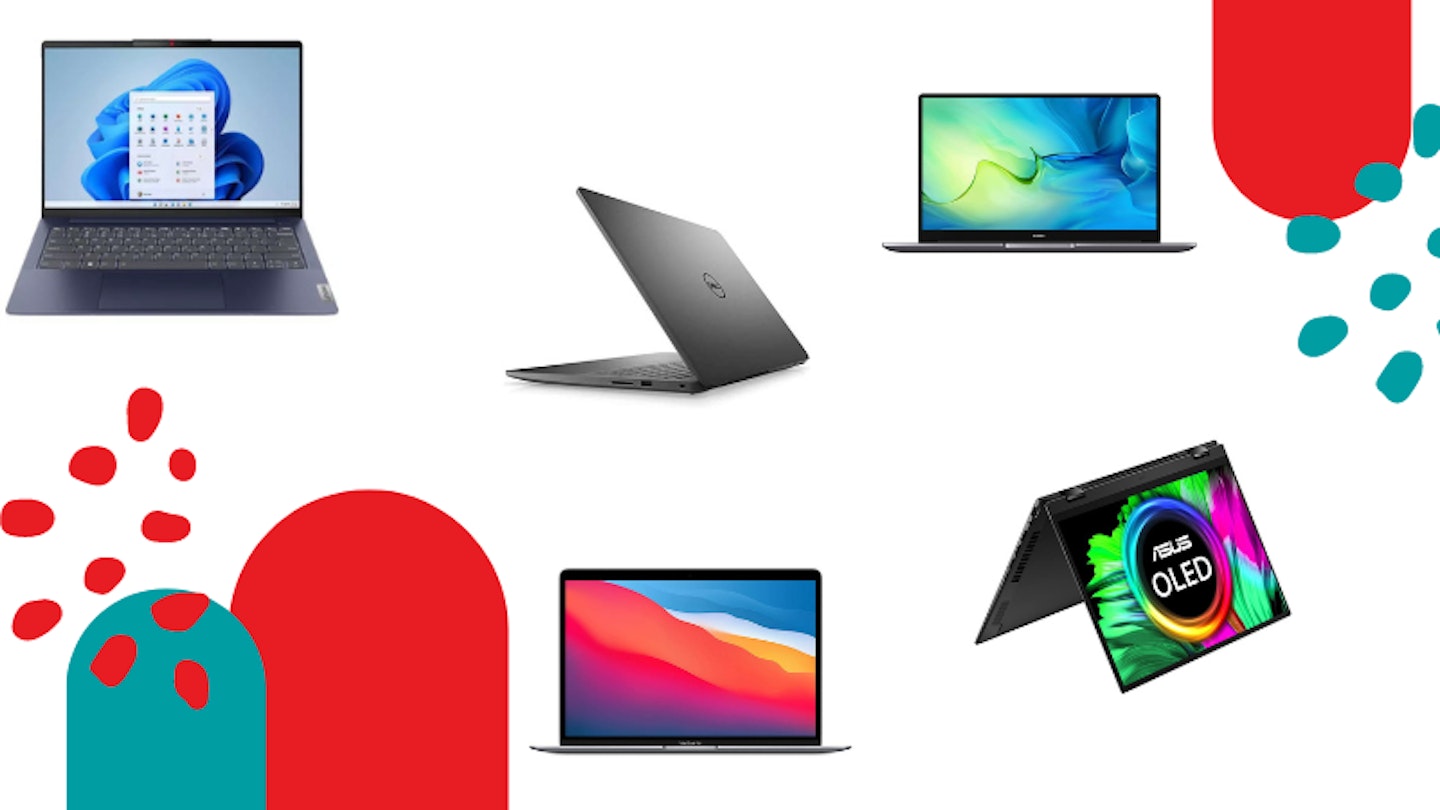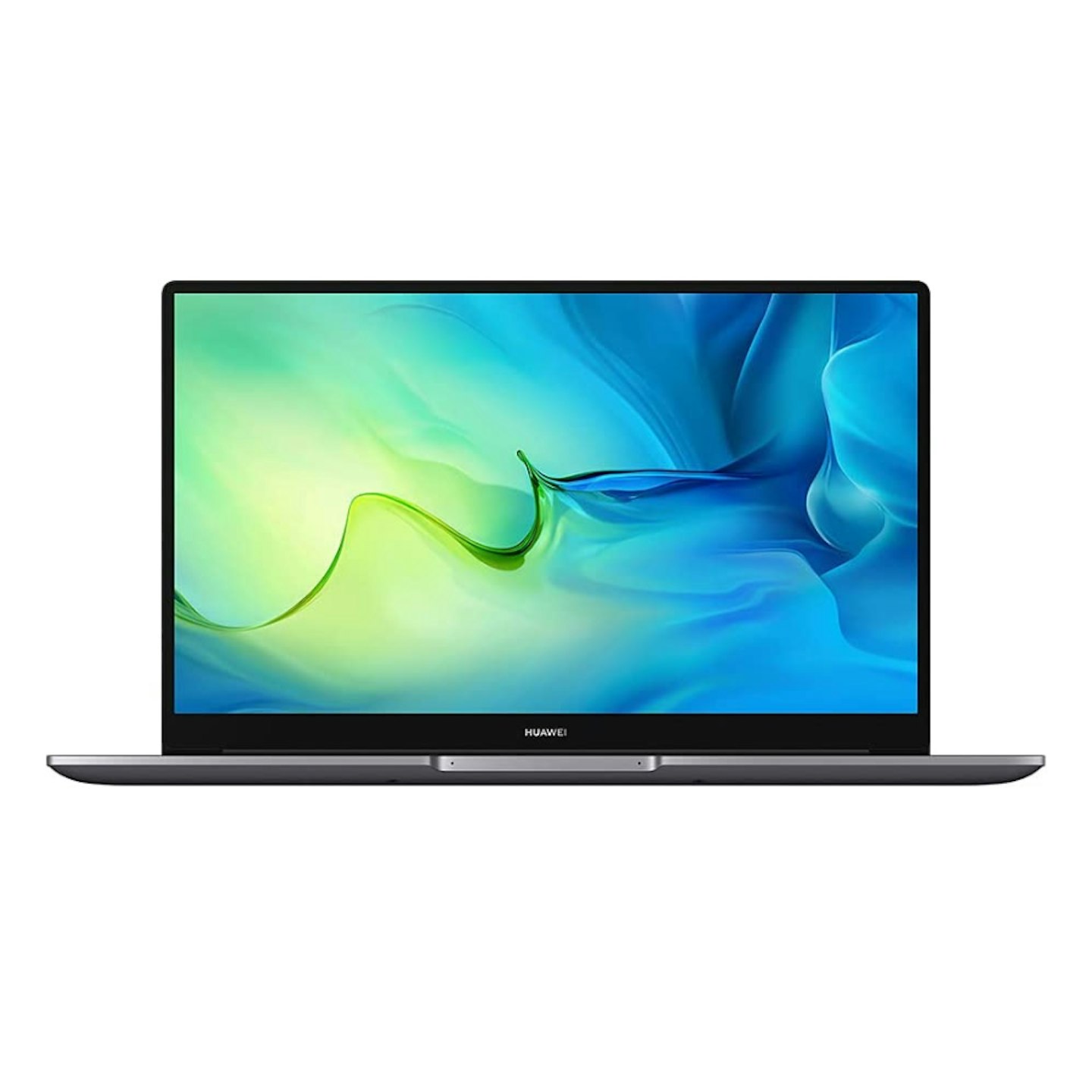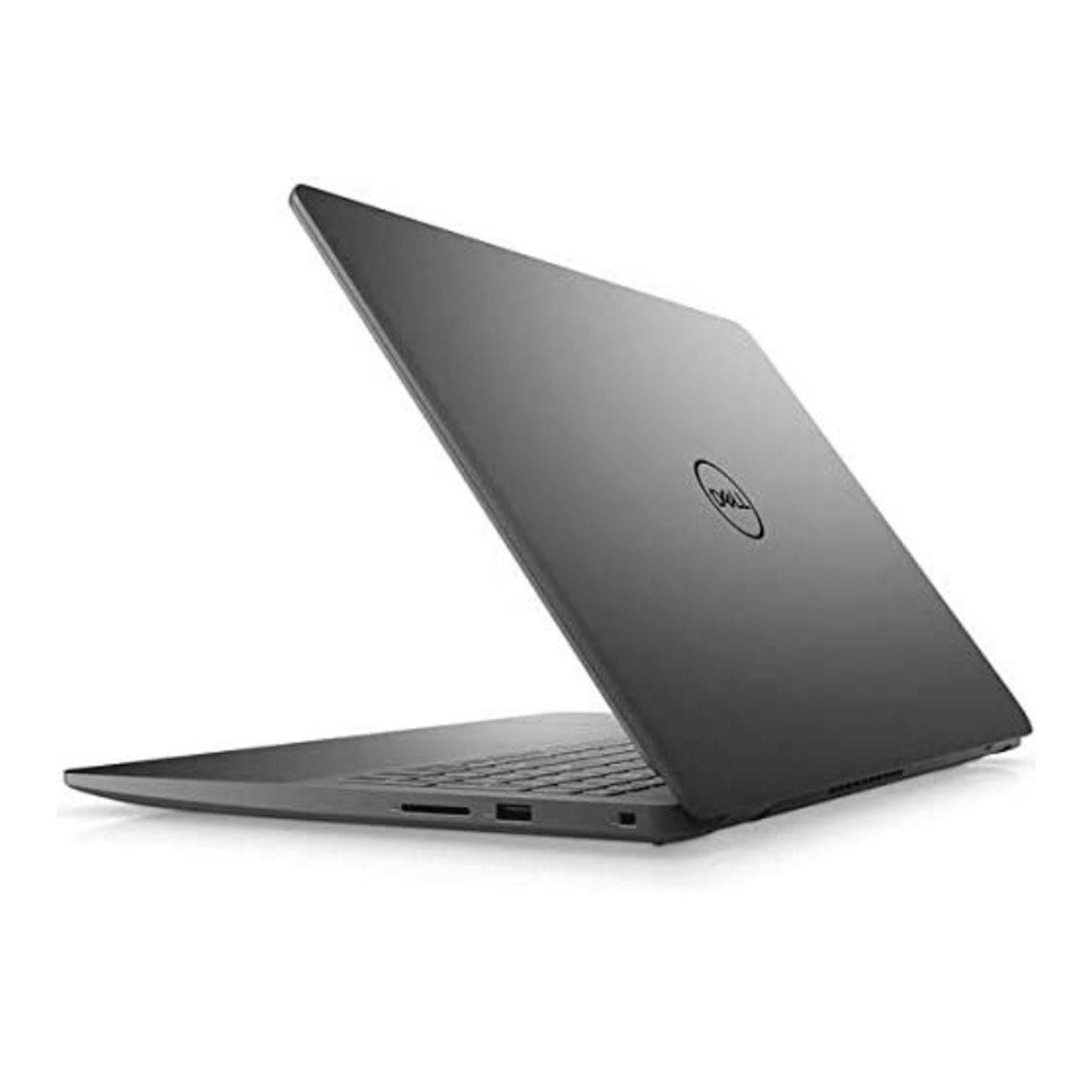It wasn’t too long ago that budget laptop computers were seen as a weaker alternative to a full-sized desktop PC. Then along came tablets with their shiny black touchscreens and built-in cameras. But the humble laptop has never stopped evolving. If your laptop has seen better days, we've rounded up the best laptops under £1,000 to help you make the most out of your budget.
What does £1,000 or less buy you? Well, you might be surprised at how much speed, storage and computing power your hard-earned cash can muster with a laptop for less than £1,000. Consider your needs carefully. Your needs might be light and simple. If your working day only needs a digital sidekick, you might want to look at a budget tablet.
Best laptops under £1,000 at a glance:
• Best budget Apple laptop: Apple MacBook Air 2020 - £849
• Best Windows laptop: ASUS Vivobook S15 OLED - £659.99
• Best general-purpose laptop: Huawei Matebook D15 - £749.99
• Best laptop for students: DELL RTX PC Ryzen 5 - £607
Laptops are still the best option for anyone who wants the freedom to work from anywhere. They're small enough to carry around, while still having enough power at your fingertips to handle the day job. And let’s not forget - the right laptop should be fun as well as practical; suitable for browsing, messaging and entertainment on the go.
Take a look at our list of the best laptops under £1,000 below. And if you’re wondering what jargon like ‘SSD’ and ‘RAM’ means, don’t let that put you off. We’ve put together a handy guide for this too.
The best laptops under £1,000
Best budget Apple laptop
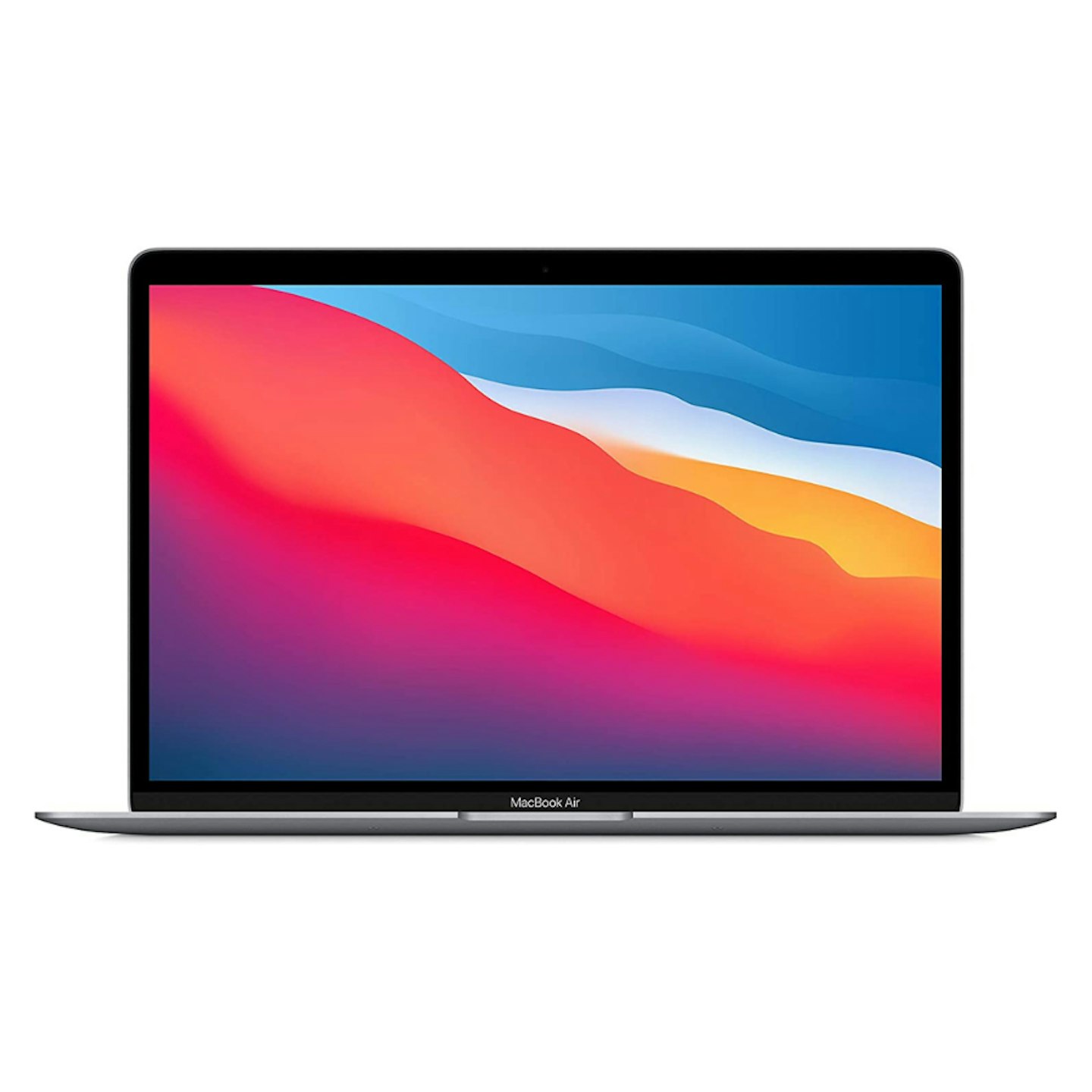
www.very.co.uk
Description
If you’re surprised to see an Apple laptop here for under £1,000 so were we. This MacBook Air is the 2020 model. Despite Apple’s constant raft of new products, it's a worthy contender for the most affordable way to get onto the Apple ladder.
As the name suggests, the MacBook Air is light and incredibly thin at just over 1.6cm. Under the hood, this laptop has an M1 chip - a processor exclusively designed for Mac. It delivers more than enough number-crunching power for everyday use. A whopping 8GB of RAM is really an excellent upgrade from most laptops in this price bracket.
Your storage comes courtesy of a 256GB SSD. While this isn’t the largest, it is Solid State - so you can expect it to be fast to boot up and responsive to use. The screen is driven by a seven-core dedicated graphics chip. The display itself is the much-lauded Apple Retina 13.3” LED screen…. But what does all this mean for you?
Well, when it comes to value for money, this is a good choice if you just want a good quality everyday laptop like this reviewer did: "I know nothing about MacBooks but I know I love this one. I deliberated over buying this or shelling out another £300 for the newer M2 version but went for this as I couldn't justify paying the extra.
"I only need a laptop for emails, spreadsheets, Word documents and watching the odd Netflix film and it does all of those incredibly well in my opinion. I'm glad I went for this one and saved the extra cash.”
Key features include built-in Wi-Fi, a trackpad, and a backlit keyboard. There’s also an HD camera and built-in mics. Plus, if you're in the mood for some online shopping, the welcome addition of a fingerprint sensor is great for logging in and making those purchases securely. Life-like colours and deep blacks will also make this a joy to use when you're flicking through your family photo album.
Pros
- Affordable Apple entry-point
- Generous RAM
- Beautiful case design
- Fingerprint recognition
Cons
- SSD capacity is not the largest
- RAM / SSD are not user-upgradable
Best Windows laptop
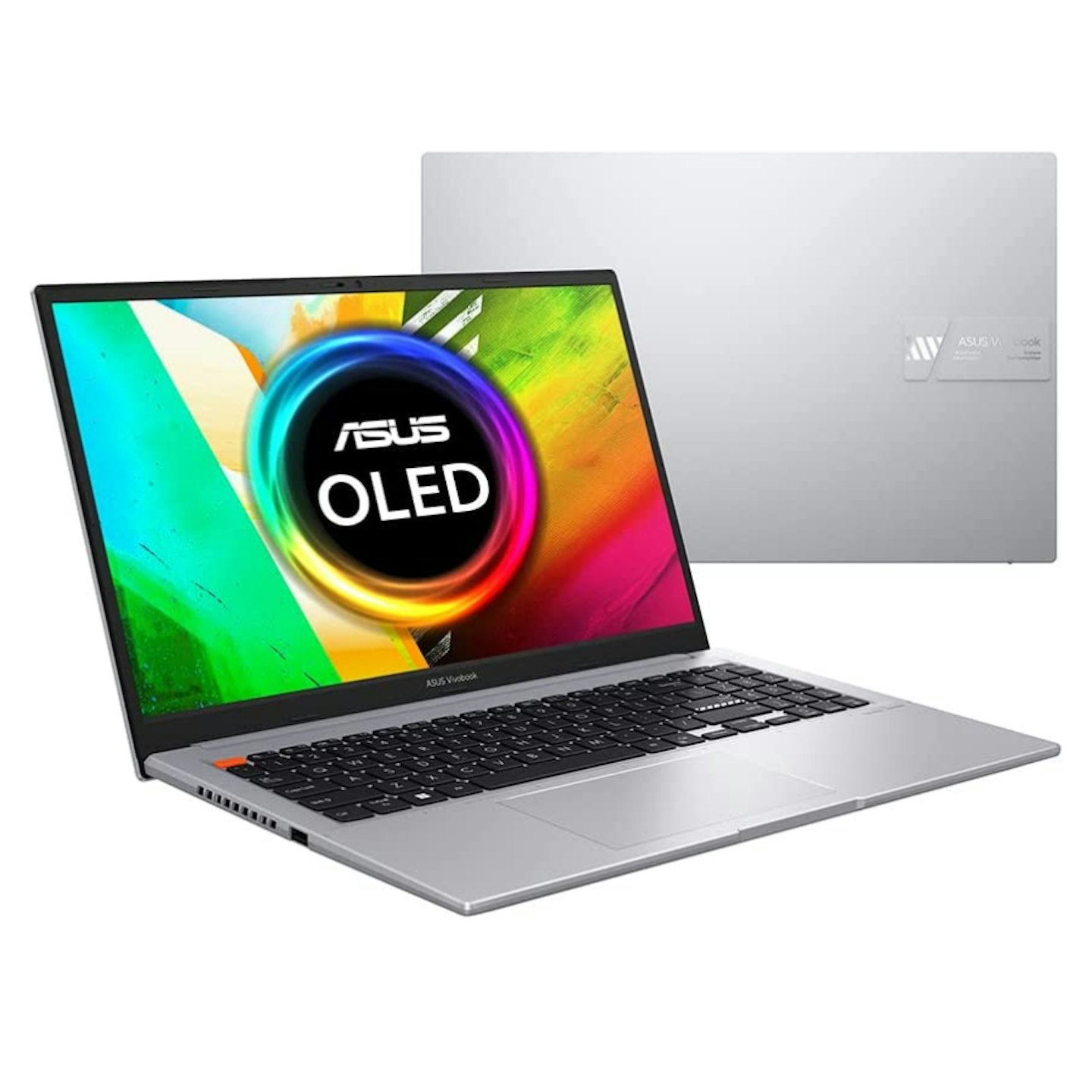
www.currys.co.uk
Description
ASUS has been around since 1989 and in that time, they’ve become known for high-quality products and deservedly so. Spec-wise, this Vivobook S15 isn’t just hot on the heels of the Apple Macbook Air - it overtakes it, and at a lower price.
The screen on this machine is 15.6" corner to corner - larger than the Mac. It’s also an OLED screen (Organic LED) which means bright vibrant colours, deep blacks and excellent contrast. The processor is an Intel i7, a fast CPU designed for high-end laptops. It’s also super thin and light for its size.
Running Windows 11, the ASUS continues to impress with a massive 16GB of RAM - a real step up from most laptops in this category. There’s also a 512GB Solid State Drive in there, which means loading times are short and there’s plenty of space for your apps and the odd game or two.
To most of us, the large amount of RAM and SSD will equate to a laptop that more than meets our everyday needs, as reviewers attest:
“Can be a bit loud if gaming but otherwise copes really well with both everyday use and for playing games (e.g. Age of Empires II). Beautiful display, good sound quality, all round great laptop!”
If you like to dabble in a bit of video editing, the graphics processing is part of the central processor rather than a dedicated graphics chip. But, this isn't an issue due to the 16GB of RAM that the system can raid to make up for any shortfall. Extra features include speakers, a built-in camera, and a noise-cancelling mic for those video catch-ups with family and friends.
Not an Apple or a Windows fan? If you’re looking for something different with plenty of customisable options (yet lighter and simpler), you might want to take a look at some of the best Chromebook laptops.
Pros
- OLED screen
- Screen size is larger than MacBook Air 2020
- Generous amount of RAM
Cons
- Keyboard not backlit
- Average battery life
Best general-purpose laptop
Description
The Huawei Matebook D15 really does hit the sweet spot between our previous two offerings.
Buyers love how quiet it is and how quick it is to start up – both points that we think are really important when considering what laptop to buy:
“I'm no laptop expert and I don't use them for gaming, but this laptop is the best I've had. The best thing is it is SO quiet. This laptop is silent, doesn't overheat and is (for what I do with it) quick. Starts up in a flash and the battery is lasting longer than I expected.”
There’s a 15” HD screen, great for most general tasks, but with a slightly lower resolution than others here. It has 8GB of RAM - so you should be able to do light photo editing on this as well as browse the web, stream your favourite movies, and even play some games. There’s also a fingerprint reader for added security. Storage is speedy and ample thanks to the 512GB SSD.
As for the CPU, the Intel Core i5 might be a few years old now, but it’s still going strong and should be more than enough for the casual laptop user. The built-in full-HD camera, speakers and microphone make video calls simple. The integrated Intel graphics delivers Ultra HD resolution too.
The operating system is Windows 11, and there’s Wi-Fi for staying connected on your travels. The case has a slim albeit slightly anonymous design, but if you’re looking for a little bit of everything, this is it.
Pros
- High spec for the price
- Fingerprint sensor for secure login
- Decent battery life
Cons
- Processor is older than some
- Keyboard not backlit
Best laptop for students
Description
If you want to invest in a laptop for a child or grandchild who’s a student, you’ll want to aim for something that’s not too cumbersome to carry around. The same if you’re a mature student – carrying a heavy backpack makes for a sweaty, uncomfortable back.
You need a lightweight, affordable machine with a large enough screen and keyboard for comfortable note-taking. But it’s not all about studying – it needs to be good for entertainment, shopping and storing photos as well.
The Dell RTX Ryzen 5 is an excellent all-rounder. The full-HD screen is 15.6" from corner to corner, the battery life is a reasonable 8.5 hours, and the case itself is sturdy enough to withstand all that moving around. Reviews mention its stylish design, quietness, and the added software:
“A lovely machine, stylish, fast and so quiet. The included Office software was the decider for me, no messing about leasing software. Unpackaged, a few simple set-up operations and it was in use 15 minutes later.”
There’s a 256GB SSD for storage, which is at the lower end but ideal for most applications needed for studies. There’s no separate graphics card, but the integrated AMD Radeon Vega 8 chip is good for light gaming or streaming that latest box set.
A real plus for all students is that the Windows 11 Pro operating system comes with Microsoft Office 2021 pre-installed. Wi-Fi will keep you connected wherever you go, and it has a built-in camera and mic. Despite the larger screen, it’s still light enough to use anywhere.
Pros
- Large screen
- Microsoft Office 2021 included
- Light for its size
- AMD graphics chip
Cons
- SSD capacity is on the small-side
Recommended
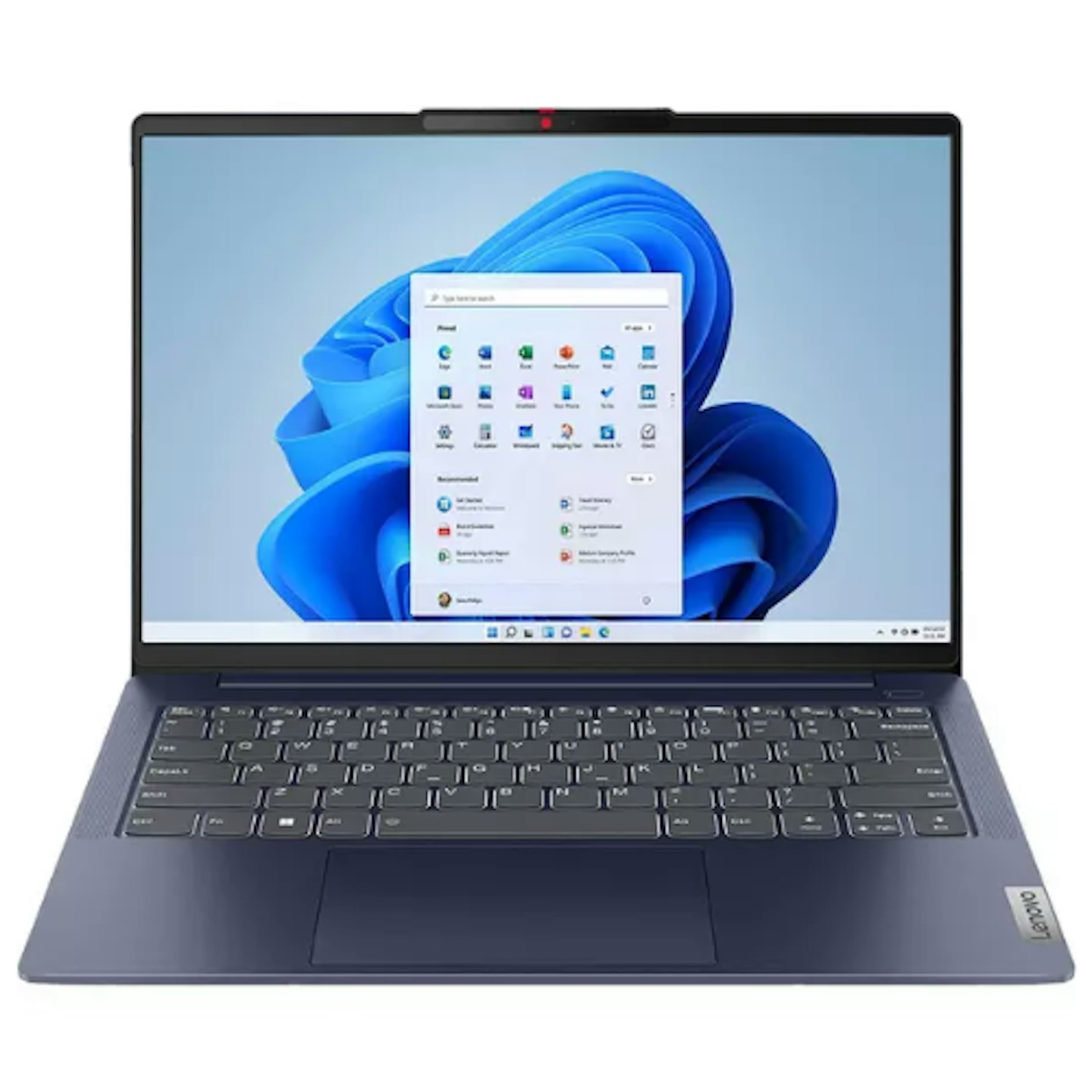
www.currys.co.uk
Description
With impressive specs for a laptop under the £1,000 mark, we'd definitely recommend the Lenovo IdeaPad Slim 5i 14" Laptop. While it may not have a display as large as others on our list, it still has a fantastic image thanks to the Full HD+ OLED screen. You can expect amazing colours and bright colours that should be visible even outside. It's also lightweight and slim, making it another great option for carrying on the go.
In terms of storage, the Lenovo IdealPad has 1TB of SSD storage, so you have plenty of space for your files, along with 16 GB of DDR5 RAM to run multiple apps and tabs at the same time.
Something else we love is the security that this laptop provides. It comes with a webcam privacy shutter to cover your Full HD webcam, so you can decide when you want to be seen on camera. You can even use 'Windows Hello' to log in with facial recognition in seconds. It's also capable of running Trusted Platform Module 2.0 (TPM 2.0) - required to run Windows 11 - which works as a building block for security-related features.
Pros
- Vibrant display
- Extra security features
- Good battery life
- Large storage
Cons
- Screen and keyboard slightly too small
Best laptop for graphic design
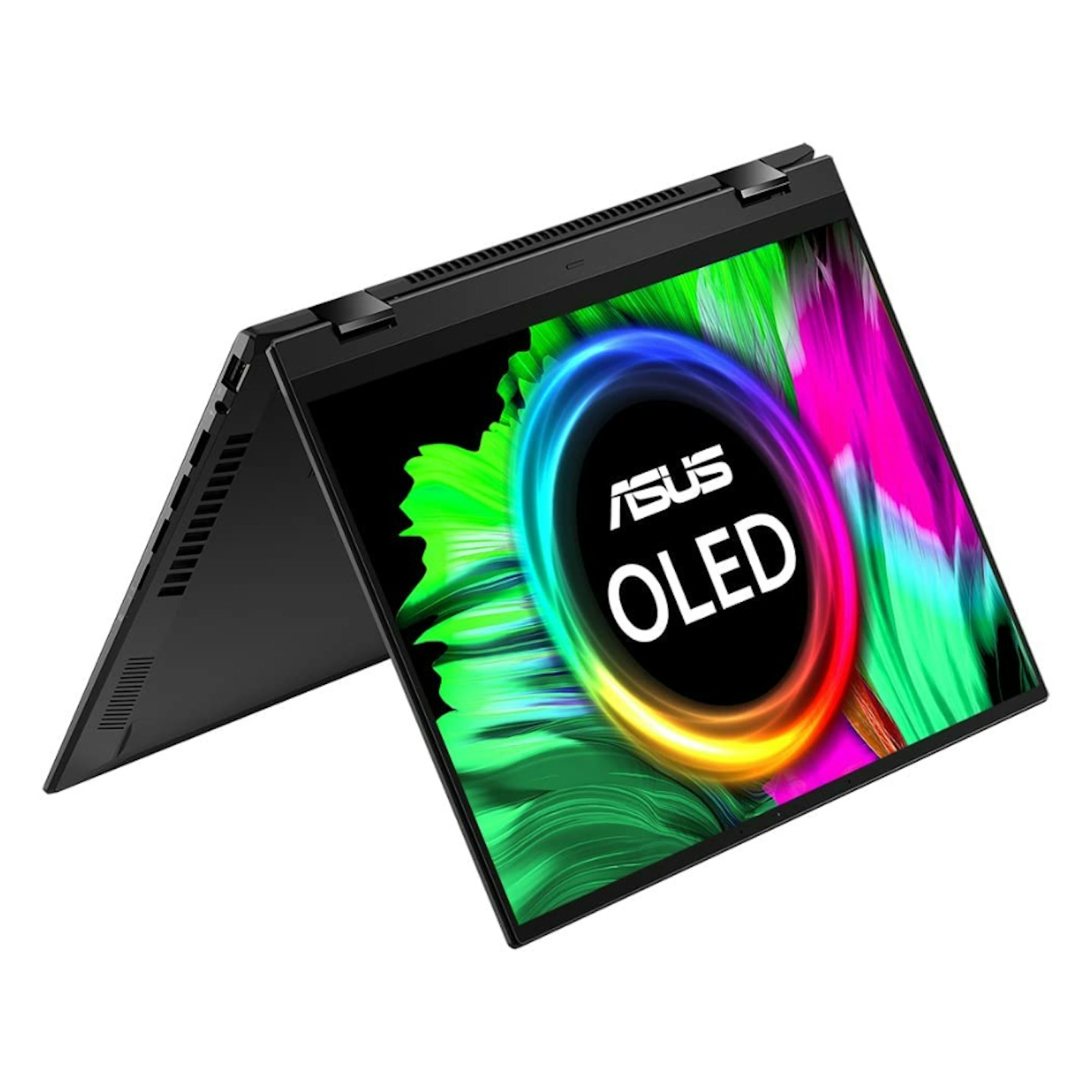
www.argos.co.uk
Description
The first thing you’ll notice about this laptop is that it can convert into a touchscreen tablet by simply folding back the screen - ideal for those who want to upgrade to a laptop without leaving the convenience of a tablet behind.
Another huge bonus is the stylus pen. Not only will this help you to avoid putting fingerprints all over that shiny new 14” OLED screen, but using a pen can make many functions easier if you suffer with stiff joints.
As for performance, this laptop won't let you down. You have a full 16GB of RAM, plenty for professional image editing and design applications too. This is backed up by the AMD Ryzen 7 processor which is a modern CPU especially designed for laptops.
It's another fantastic choice if you’re looking to buy a laptop for a student, as it’s so versatile and easy to carry. One review said: “Bought this for my son for his studies and he is very happy. He said it’s so nice and brilliant and very light weight compared to his old laptop.”
If you want plenty of storage, the Zenbook has a massive 1TB Solid State Drive, so not only will it perform quickly, there’s room for your digital artwork and family photographs.
“All over performance is good, like the picture quality on screen. The speed is just brilliant, and sound is just like proper speakers on side.”
Helpful additions include a fingerprint sensor for security, backlit keys, and a dual-function touchpad with an integrated numeric keypad. If you're looking for the perfect artist's tablet, a portable office, and a way to keep in touch with your nearest and dearest, you've found it.
Pros
- Vibrant OLED screen
- Very lightweight for the specification
- Converts into a tablet
- Included stylus pen and integrated Bluetooth
Cons
- Some designers may need a larger screen
- Average battery life under heavy load
Best touchscreen laptop
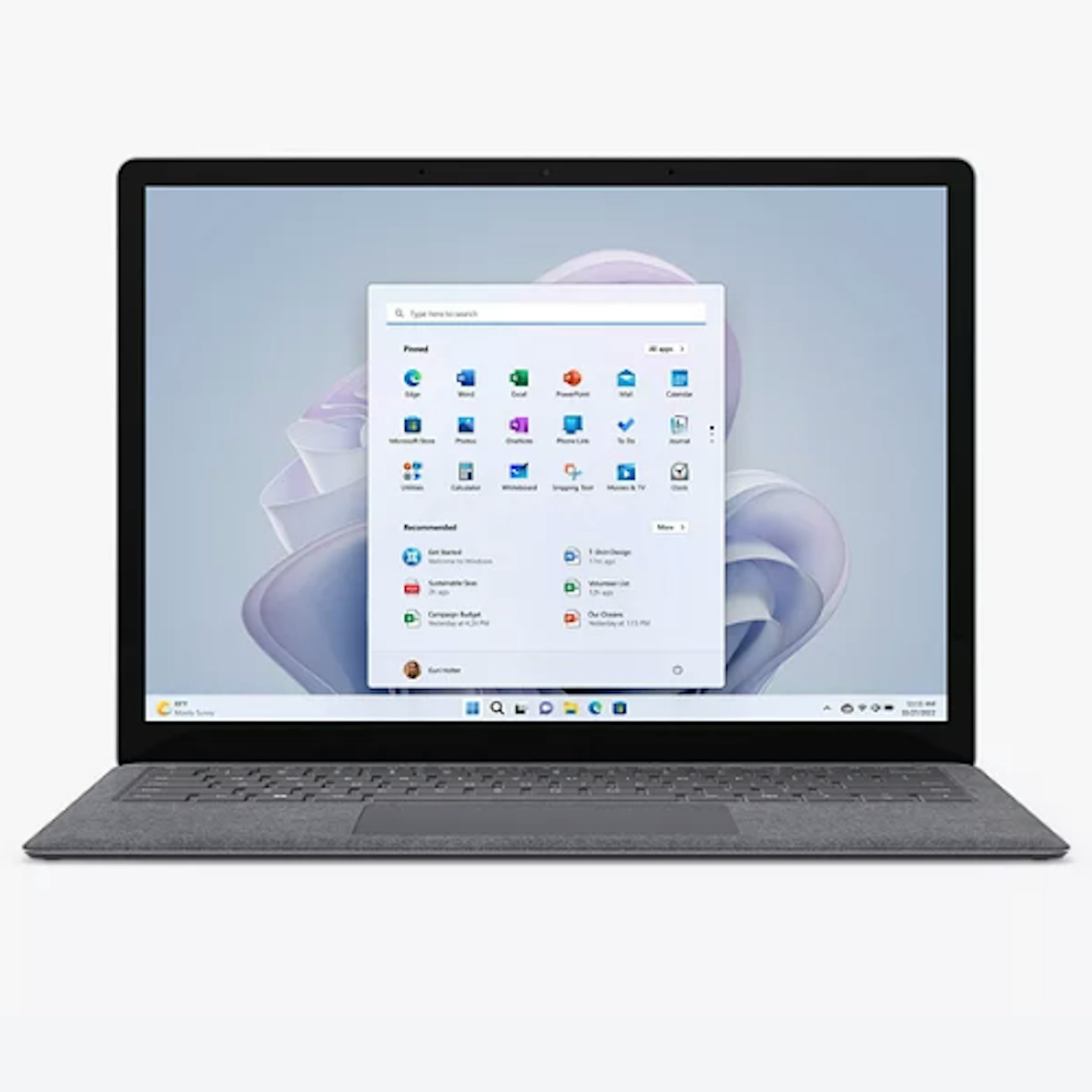
www.johnlewis.com
Description
With 8GB memory, this laptop is perfect for online browsing and emails and with an Intel Core i5 processor, you can run lots of programmes at once without issue. And while this laptop has a large trackpad, it also has a vibrant 13.5-inch PixelSense display with an interactive touchscreen if you prefer the dynamics of a tablet.
If you have an abundance of photos and documents and need the storage to store them all safely, the Microsoft Surface Laptop 5 has a 256GB Solid State Drive (SSD) for fast and dependable access to your files.
All in all, the laptop is ergonomic and makes for a great everyday laptop, though it doesn't have the RAM for more intense laptop use. And with up to 17 hours of battery, it's one you can happily take on the go without risk of needing a charger. Not to mention, we think it's got a rather sophisticated style that makes it look more expensive than it is.
Pros
- Long battery life
- Ergonomic and stylish design
- Lightweight
- Vibrant display
Cons
- No customer reviews yet
Best laptops under £1000 buyer’s guide
RAM - your laptop’s memory
RAM (which stands for Random Access Memory) is the laptop’s capacity for running current tasks. It works alongside the processor to get things done. So, the higher the RAM, the more complex tasks you can do at once without the machine getting sluggish. It’s measured in gigabytes (GB).
2GB: This isn’t that common these days, although 2GB can still be found in low-end tablets. It's fine for browsing the internet, having an open document or two, and video calls; although if you do too much of this at the same time you’re likely to experience speed issues.
4GB: Now a very common specification in entry-level laptops and notebooks. It's a good amount of RAM for daily computer use, word processing, watching internet videos, and general browsing.
8GB: If your budget allows, 8GB is probably the ideal amount of RAM for a daily-use laptop. It’s good for everyday tasks but can also stretch to more intensive work - like photo editing or basic video editing.
16GB: This is ideal for professionals and those who need several intensive applications open at once. Best suited to programmers or coders, designers or video editors.
32GB upwards: This amount of RAM is really only found in high-end laptops. It can handle pretty much anything you can throw at it.
GPU - Graphics Processing Unit
Budget laptops under £1,000 come with a GPU to deliver graphics, but it may be integrated into the CPU itself. The downside is that your CPU is going to have to use some of its capacity (and RAM) to work.
Other laptops have a physically separate GPU, which means it’ll run independently and not hog that precious CPU or RAM. If you’re doing a lot of photo processing or video work it’s better to find a laptop with a dedicated GPU.

Guide to screen resolution
Most laptops will be able to display HD or Full HD nowadays, with higher resolutions for those who prefer photos, movies, and games at a high level of detail. A rule of thumb with screen resolution is the higher the better. Here are the most commonly found number of pixels for each resolution:
HD: 1280 × 720 pixels
Full HD: 1920 ×1080 pixels
Ultra HD/4K: 3840 × 2160 pixels
Hard drive - your storage space
So, you’ve bought one of the best laptops under £1,000. It has a fast CPU, a ton of RAM and a graphics card that’ll deliver the goods. But what about storage? After all, there’s no point in having all of that power at your command without enough storage space on your drive for all of your applications.
The more storage the better, but you have two main types of drive to choose from Hard Disk Drives (HDD), and Solid State Drives (SSD).
HDDs are basically spinning magnetic discs. The technology is well-proven, reliable and most importantly affordable. They are also available in very high capacities, meaning you could have a laptop with up to 5TB (terabytes) or more. We recommend HDDs with 2TB or more for laptops under £1,000.
SSDs are chips rather than spinning discs, so they don’t have moving parts (hence ‘Solid State’). They’re blisteringly fast compared to HDDs. They also work silently. However, this comes at a price as they’re more expensive than a traditional HDD. What you lose budget-wise you gain in speed. Your operating system will boot faster and your applications will run faster too.
CPU - Central Processing Unit
There’s no point in having a lot of RAM if your CPU - the chip that will do all of the actual work - isn’t fast enough to utilise it. We’ve made sure that our recommended models have CPUs with well-matched RAM.
Best laptops under £1,000 FAQs
Is a laptop the same as a notebook?
Essentially, yes. They’re basically both the same thing, but a notebook (as the name suggests) is often thinner, lighter and won’t have the get-up-and-go to handle much more than a few basic office functions at once. A laptop is likely to be a little bigger, with a larger battery and faster too - allowing you to do more with it.
Which laptop is best for general-purpose use?
We think that the best general-purpose laptop for less than £1,000 is the Huawei Matebook D15, as featured above. It has a well-balanced specification, meaning you should be able to comfortably enjoy doing your daily work and general browsing with it.
Which laptop is best for entertainment?
Entertainment means something different to everyone, but if sitting on the train watching Netflix is your thing (with perhaps a spot of gaming to break up your commute), you’ll need a laptop with decent graphics capability, more RAM and a lovely big screen to enjoy it all on. We think the ASUS Vivobook S15 OLED above is a great choice.
A tablet might be fine for the odd video, and some of the best budget tablets might be suitable, but they won’t deliver the power or flexibility of a laptop. Our pick above, the ASUS Vivobook S15, is a solid laptop choice for entertainment as well as general use.
Which laptop is best for students?
Most students will want the best of all worlds, so you'll need to spend your £1,000 (or less) wisely. It might be tempting to splash it all on a laptop with the biggest screen you can find, but remember - they’ll need to carry this around campus and on public transport. So, we recommend the Dell RTX PC Ryzen 5. It’s the ideal choice for something light and portable, with a large enough screen to make it comfortable to use long-term. A bonus is the graphics card that can handle most games with ease - perfect for your child (or grandchild) who is about to set off on their big college adventure. Every student likes multiple-choice questions, and this laptop ticks all the right boxes.
Ryan Houghton is a commercial content writer, specialising in technology. When Ryan isn’t engrossed in writing about an enthralling new technological marvel, he’s probably PC gaming, bingeing entire shows on Netflix in a single sitting, or enjoying drinks with friends.
